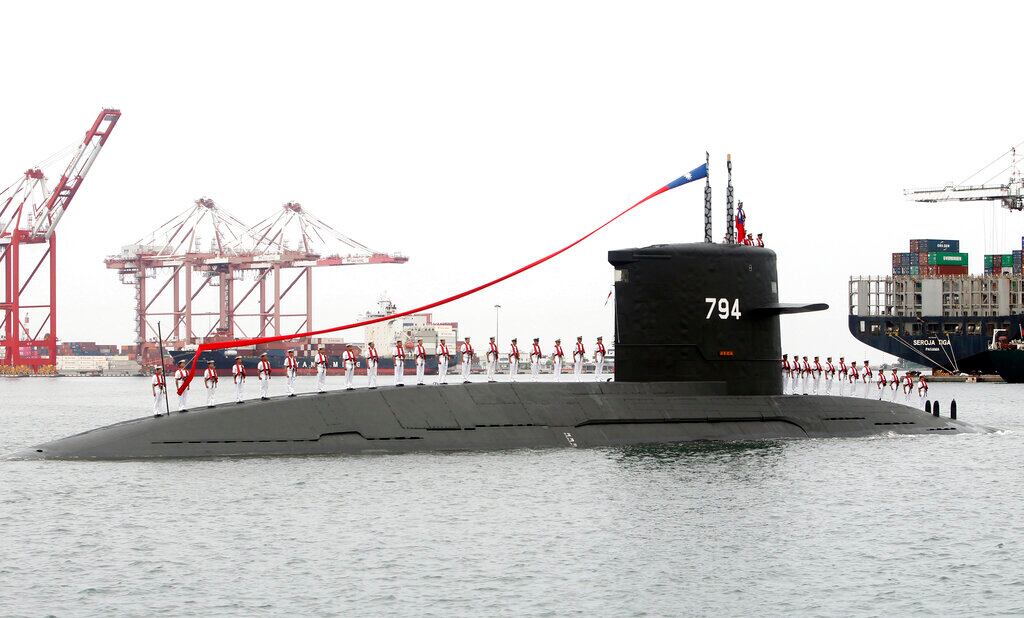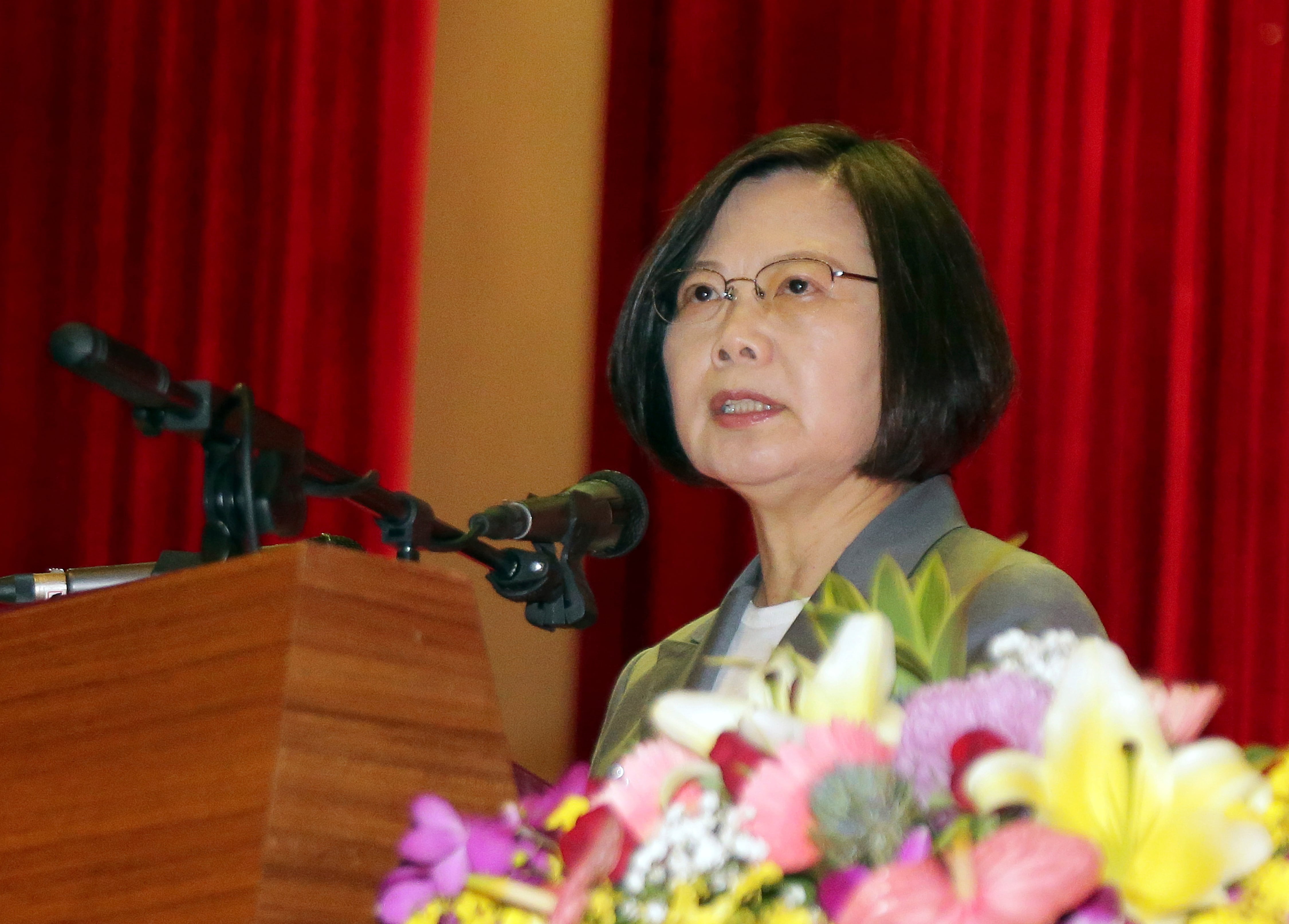TAIPEI, Taiwan — Taiwanese President Tsai Ing-wen said Friday the island has been “aggressively promoting indigenous national defense” with help from U.S. arms sales that have raised Beijing’s ire.
“We locally build our submarines and fighter jets, and these are not just slogans,” Tsai said at an annual Armed Forces Day event in Taipei City.
She also noted recent U.S. sales of M1A2 tanks and F-16Vs to Taiwan as proof that “our determination to defend ourselves also won support from the international society.”
A blueprint for new submarines, submarine factory construction and a jet trainer prototype are all in the works, Tsai said.
Taiwan is a democratically governed island that split from Communist Party-ruled mainland China amid civil war in 1949. Beijing claims Taiwan as part of its territory and maintains that "unification" is the goal.
While the U.S. cut formal diplomatic relations with Taiwan in 1979 to recognize Beijing, U.S. law requires Washington to ensure Taiwan has the means to defend itself.
RELATED

China fiercely opposes all arms sales to Taiwan but has specifically objected to advanced fighter jets such as the F-16V, whose Active Electronically Scanned Array, or AESA, radar is compatible with the F-35 stealth fighters operated by the U.S. military.
President Donald Trump announced approval earlier this month of the sale of 66 F-16Vs in an $8 billion deal.
The U.S. has also approved in recent months the sale of 108 M1A2 Abrams tanks and 250 Stinger missiles, valued at $2.2 billion.
W. Brent Christensen, America’s top representative in Taiwan, said this month that he anticipates continued growth in Taiwan’s defense spending “commensurate with the threats” it faces.

Chinese President Xi Jinping has said he would not rule out using force against what he called external parties and Taiwanese separatists in efforts to “unify” Taiwan and the mainland.
“If anyone dares to separate Taiwan from China, the Chinese army will certainly fight, resolutely defending the country’s sovereign unity and territorial integrity,” Chinese Defense Ministry spokesman Wu Qian said in July.





